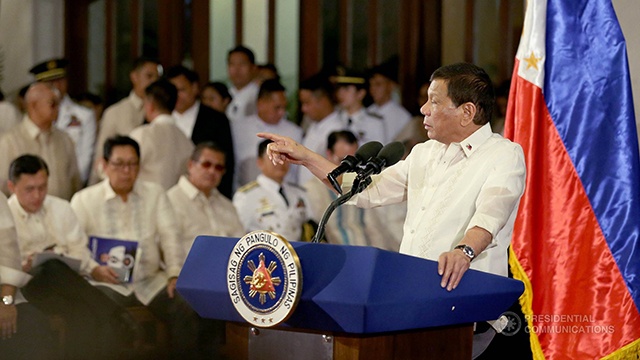Like resilience, community is a popular term that is still loosely defined in the literature. A group of people living in the same place or sharing similar characteristics may contain numerous internal conflicts and divisions and may not act as a cohesive entity during a disaster, despite the connotations the term ‘community’ conjures. Nevertheless, measuring resilience at the community level is advantageous. Communities have a unique understanding of the factors that contribute to their ability to resist, absorb and recover from disturbances as well as a direct understanding of the risks that they face. The social norms, social capital and social networks in which individuals are embedded will determine disaster behaviour and the outcomes of a disaster. Preparedness plans developed internally by communities have been shown to be better than those developed externally by consultants. In the event of a disaster, neighbours and local peers are inevitably the first responders. Communities are therefore the most effective locus of disaster preparedness activities.
The Philippines has a strong set of policies, frameworks and plans for disaster risk reduction (DRR), through which work on resilience can be grounded. The key law is the Philippine Disaster Risk Reduction and Management Act of 2010 (DRRM Law). The DRRM Act establishes local councils at the regional, provincial, municipal, and community levels that replicate the National Disaster Risk Reduction and Management Council’s (NDDRMC) responsibilities; however, these local councils are often understaffed or lacking professionalisation and a significant gap exists as the NDRRMC cannot supervise all the local councils. Local political leaders’ support of disaster management, local appreciation of the importance of disaster management, funding, and training and support from the national government determine the effectiveness of local councils. Climate change is altering the playing field as areas that had historically not been affected by disasters, and as such had been less likely to proactively view disaster management, are increasingly likely to face extreme, unpredictable weather events.
Hazards, vulnerability and risk assessments
It is uncertain how well disaster risk is communicated to the public, how many projects focus on improving community knowledge on hazards and disaster risk, and challenges remain in measuring and assessing the complex nature of all the factors which can influence disaster risk locally. There are limited studies to measure the combined socio-ecological resilience of the Philippines, at local and national scales, to help decision-makers locate areas of high vulnerability. Comprehensive risk and vulnerability nation-wide and localised mapping exists from organisations such as the Manila Observatory and the Department of Science and Technology. Post-disaster assessments exist but there is more need for equivalent pre-disaster risk assessments to be generated and shared with communities. Communicating risk information and ensuring communities personalise their risk are proving challenging. Even amongst highly educated demographics, such as medical students, there was a tendency to overestimate the risk of low probability, high consequence disasters such as geophysical disasters (e.g. earthquakes) over high probability events like floods. Post-Haiyan surveys found that the public had not understood what “storm surge” signified, did not necessarily know that their houses were located in a potential storm surge area, and even expressed opinions that the risk maps may be exaggerated. A number of NGOs, including the Philippines Red Cross, conduct community-based vulnerability assessments to improve community awareness. More work on hazard sensitisation and continuing to augment awareness and knowledge of hazards and the threats they pose appear to be needed.
Early warning systems and evacuations
Early warning systems and evacuation plans necessarily rely on a public who understands their risks and understand the consequence of the information being disseminated, so that they can prepare appropriately in sufficient time. Community culture, perceptions and values are known to be important components of successful early warning systems and there are calls for greater integration of local/indigenous knowledge related to DRR within science and policy. Both an independent study and a PAGASA (the Philippine Atmospheric, Geophysical and Astronomical Services Administration) programme introduced community-based monitoring and early warning of hazards into several provinces and showed these were effective complements to traditional centralised early warning systems because they were real-time, localised, empowered those in the best position to undertake preparation and were more likely to be sustained. Finally, evacuation planning, involving the pre-emptive evacuation of people in high risk locations, has been an effective means of reducing disaster impacts in the Philippines because in general communities are compliant.
It appears that community networks and reciprocity are the predominant mechanisms through which Filipinos cope with risk. Strong community or familial links have been shown to be just as effective as formal insurance schemes, post-disaster. On an everyday basis, Filipinos promote bayanihan, which is a strong social norm of community welfare and reciprocal labour and comes into play during disasters, in which those less affected help those which have been hit harder. There is some indication that in geographical regions most exposed to disaster risk, mutual associations and networks devoted to mutual assistance proliferate most readily. However, community-based mutual assistance activities cannot always be relied upon. Community support may be widespread during the initial rehabilitation efforts, but during long-term recovery community-level activities become rarer and support is exclusive to extended family members. Community-based activities are nuanced, social networks will be influential and the nature of the disaster and devastation will likely determine how the community comes together and who is excluded.
Capacity building for disaster preparedness
Capacity building is occurring across levels from local to national in the Philippines, but focus is predominantly at the local level where numerous actors and networks are collaborating with communities to identify existing capacities, as well as provide the opportunity to build infrastructure, which could minimise the impacts of a hazard. Differences in community resources, livelihoods options and assets affect local capacity and the extent to which capacity can be strengthened. A case study in Iloilo City showed that community-driven DRR required strong social networks, alternative finance facilities, technical professional networks that support community processes, and community managed information systems. Furthermore, it has been highlighted that schools and student groups could play an important, though yet untapped, role in capacity-building for DRR.
The government is also contributing significantly to capacitating local government units (LGUs) by developing a checklist of actions to be taken, supplies to be procured, and important resources together with providing communications and contingency templates for disaster preparedness. These are aimed at the Mayors as well as local chiefs of police and fire marshals. Yet, it is not clear whether these data collection efforts at the LGU level will contribute to improved national disaster preparedness.
REFERENCE LINK:
- IPCC, 2014: Climate Change 2014: Synthesis Report. Contribution of Working Groups I, II and III to the Fifth Assessment Report of the Intergovernmental Panel on Climate Change [Core Writing Team, R.K. Pachauri and L.A. Meyer (eds.)]. IPCC, Geneva, Switzerland, 151 pp.
- Poverty in the Philippines: causes, constraints, and opportunities. Mandaluyong City, Philippines: Asian Development Bank, 2009.
- Bollettino V, Dy P, Alcayna T, Vinck P. DisasterNet Scoping Study. USA: Harvard Humanitarian Initiative, 2015.
- Uscher-Pines L, Chandra A, Acosta J. The promise and pitfalls of community resilience. Disaster Med Public Health Prep. 2013 Dec;7(6):603-6. PubMed PMID:24345588.
- www.google.com.ph/search?q=resiliency+of+filipinos+on+disasters&client=ms-android-samsung-gj-rev1&prmd=inv&source=lnms&tbm=isch&sa=X&ved=0ahUKEwj3vMXIgpLdAhVJZt4KHdwOC1AQ_AUIESgB#imgrc=QQckco_xQmap4M:&isa=y


